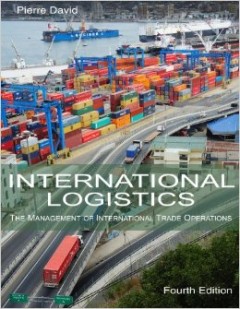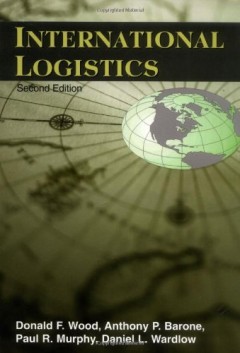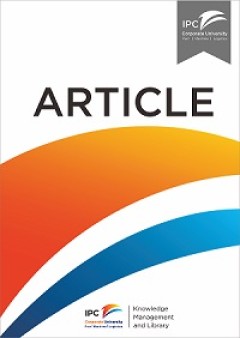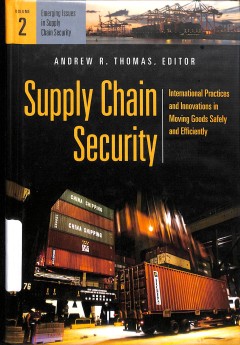Ditapis dengan

Syllabus : Trade Contract
- Edisi
- Trade Contract
- ISBN/ISSN
- -
- Deskripsi Fisik
- illus,; 30 cm
- Judul Seri
- Trade Contract
- No. Panggil
- CC STC SYL t C1
- Edisi
- Trade Contract
- ISBN/ISSN
- -
- Deskripsi Fisik
- illus,; 30 cm
- Judul Seri
- Trade Contract
- No. Panggil
- CC STC SYL t C1

Syllabus : Shipping, Trade & Trasnportation Law
- Edisi
- Shipping, Trade & Trasnportation Law
- ISBN/ISSN
- -
- Deskripsi Fisik
- 44 page
- Judul Seri
- Shipping, Trade & Trasnportation Law
- No. Panggil
- CC STC SYL s C1
- Edisi
- Shipping, Trade & Trasnportation Law
- ISBN/ISSN
- -
- Deskripsi Fisik
- 44 page
- Judul Seri
- Shipping, Trade & Trasnportation Law
- No. Panggil
- CC STC SYL s C1

Course Outline & Study Guide : Shipping, Trade & Trasnportation Law
- Edisi
- Shipping, Trade & Trasnportation Law
- ISBN/ISSN
- -
- Deskripsi Fisik
- 11 page
- Judul Seri
- Shipping, Trade & Trasnportation Law
- No. Panggil
- CC STC COS s C1
- Edisi
- Shipping, Trade & Trasnportation Law
- ISBN/ISSN
- -
- Deskripsi Fisik
- 11 page
- Judul Seri
- Shipping, Trade & Trasnportation Law
- No. Panggil
- CC STC COS s C1

Reader : Shipping, Trade & Trasnportation Law
- Edisi
- Shipping, Trade & Trasnportation Law
- ISBN/ISSN
- -
- Deskripsi Fisik
- illus,; 30 cm
- Judul Seri
- Shipping, Trade & Trasnportation Law
- No. Panggil
- CC STC REA sh C1
- Edisi
- Shipping, Trade & Trasnportation Law
- ISBN/ISSN
- -
- Deskripsi Fisik
- illus,; 30 cm
- Judul Seri
- Shipping, Trade & Trasnportation Law
- No. Panggil
- CC STC REA sh C1

Presentations : Shipping, Trade & Trasnportation Law
- Edisi
- Shipping, Trade & Trasnportation Law
- ISBN/ISSN
- -
- Deskripsi Fisik
- 119 page
- Judul Seri
- Shipping, Trade & Trasnportation Law
- No. Panggil
- CC STC PRE s C1
- Edisi
- Shipping, Trade & Trasnportation Law
- ISBN/ISSN
- -
- Deskripsi Fisik
- 119 page
- Judul Seri
- Shipping, Trade & Trasnportation Law
- No. Panggil
- CC STC PRE s C1

Reader Maritime Conversations : Shipping, Trade & Trasnportation Law
- Edisi
- Shipping, Trade & Trasnportation Law
- ISBN/ISSN
- -
- Deskripsi Fisik
- illus,; 30 cm
- Judul Seri
- Shipping, Trade & Trasnportation Law
- No. Panggil
- CC STC REA s C1
- Edisi
- Shipping, Trade & Trasnportation Law
- ISBN/ISSN
- -
- Deskripsi Fisik
- illus,; 30 cm
- Judul Seri
- Shipping, Trade & Trasnportation Law
- No. Panggil
- CC STC REA s C1

International Logistics: The Management of International Trade Operations
A full-color textbook covering all of the concepts of international logistics. This textbook is written from the perspective of the users, those managers who are actively exporting or importing goods or are otherwise involved in international trade operations. All of the relevant issues are thoroughly explained, including documentation, terms of payment, terms of trade (2010 Incoterms rules), e…
- Edisi
- 4th ed.
- ISBN/ISSN
- 978-0-9894906-0-3
- Deskripsi Fisik
- xxvi, 695p. ; 28cm.
- Judul Seri
- -
- No. Panggil
- TXT LO DAV i

Being global : how to think, act, and lead in a transformed world
What makes being a global business leader today such a complex task? It’s more than mastering your knowledge of various geographies and cultures, though that is essential. But to succeed, you must also master the complex mind-set and competencies needed to lead in today’s fully globalized world. Not an easy assignment.Enter Ángel Cabrera and Gregory Unruh. In Being Global, they pull from …
- Edisi
- -
- ISBN/ISSN
- 978-1-4221-8322-9
- Deskripsi Fisik
- 206 p, 25 cm ; index
- Judul Seri
- -
- No. Panggil
- LC 658.409 CAB b

International Trade
Assuming a minimum exposure to Principles of Microeconomics, this book reviews economic models and presents theories to explain the benefits and goals of trade between countries. It is rigorous and unique in its presentation of stories about countries in today's world. In addition to real-world stories, the text also offers standard theoretical constructs and economic models.
- Edisi
- -
- ISBN/ISSN
- 978-0470408797
- Deskripsi Fisik
- xxi, 329p. ; 26cm.
- Judul Seri
- -
- No. Panggil
- MR MCL i

Maritime Logistics and Supply Chain Security
Despite a hangover from the worldwide economic crisis, international trade rebounded nicely with a record-level growth in late 2010. A sharp rise in international trade has sparked the international traffic growth. A majority of this traffic growth originated from maritime logistics which could move cargoes in large volume and at cheaper freight costs. Due to its cost-efficiency and easy acces…
- Edisi
- 2012
- ISBN/ISSN
- 978-1-78052-340-8
- Deskripsi Fisik
- 27 P
- Judul Seri
- Maritime Logistics
- No. Panggil
- ATC LO MIN m

International logistics
- Edisi
- -
- ISBN/ISSN
- 978-1-4615-2085-6
- Deskripsi Fisik
- -
- Judul Seri
- -
- No. Panggil
- TXT LO Woo i
- Edisi
- -
- ISBN/ISSN
- 978-1-4615-2085-6
- Deskripsi Fisik
- -
- Judul Seri
- -
- No. Panggil
- TXT LO Woo i

Managers' Perceptions of NAFTA
Canadian and United states managers identified NAFTA‐related benefits and threats. These factors were related to the managers' overall perceptions of the effect of NAFTA on firm performance. Results indicated that NAFTA's perceived benefits include increased access to the Mexican market and to other Latin American markets, improved customs procedures, and increased effectiveness and efficienc…
- Edisi
- Vol. 8 Issue: 2, pp.33-46
- ISBN/ISSN
- -
- Deskripsi Fisik
- 16 p.
- Judul Seri
- The International Journal of Logistics Management
- No. Panggil
- ATC LO COO m

Logistics development in China
The accession of the People’s Republic of China to the World Trade Organisation should provide greater access to an erstwhile-untapped market. Trade and foreign investments are expected to increase rapidly. Under this setting, an enormous challenge is posed to the logistics industry as it endeavours to meet the increased demands of the market. Based on the secondary data, this paper finds tha…
- Edisi
- Vol. 33 No. 10, 2003
- ISBN/ISSN
- -
- Deskripsi Fisik
- 36 p.
- Judul Seri
- International Journal of Physical Distribution & Logistics Management
- No. Panggil
- ATC LO LIN l

Logistics in Bulgaria: Concepts for New Market Expansion
Examines the current situation for logistics in Bulgaria. Reviews the prospects for applying logistics concepts with respect to the economic environment for privatization and investment. Presents the findings. Concludes with some cautions concerning the issue of transferring logistics knowledge in Bulgaria.
- Edisi
- Vol. 24 Iss 2 pp. 30 - 36
- ISBN/ISSN
- -
- Deskripsi Fisik
- 10 p.
- Judul Seri
- International Journal of Physical Distribution & Logistics Management
- No. Panggil
- ATC LO PUR l

On the diversification of international freight forwarders: A UK perspective
This paper examines the diversification of services and activities by freight forwarders in the UK. Following similar studies conducted in the USA, the paper analyses the trends towards service and revenue diversification that has been observed in this sector.
- Edisi
- Vol. 36 No. 5, 2006 pp. 336-359
- ISBN/ISSN
- -
- Deskripsi Fisik
- 26 p.
- Judul Seri
- International Journal of Physical Distribution & Logistics Management
- No. Panggil
- ATC LO MAR o

Logistics integration in horizontal mergers and acquisitions
In this article, we describe the integration of logistics after Mergers and Acquisitions (M&As) of firms within the same industry and, same industry level (i.e. horizontal M&As). First, we present a review of the literature on M&As and conclude that operational issues, in general, and logistics issues, in particular, have received little attention. In parallel with the literature review, we con…
- Edisi
- Vol. 15 Iss 1 pp. 27 - 42
- ISBN/ISSN
- -
- Deskripsi Fisik
- 18 p.
- Judul Seri
- The International Journal of Logistics Management
- No. Panggil
- ATC LO OJA l

Methods of payment and foreign-exchange risk management among firms in Brunei…
The purpose of this paper is to examine various methods of payment and foreign-exchange risk management among firms involved in either export or import trade only, or both in Brunei Darussalam. The paper also seeks to delineate the relationship(s) between various characteristics of firms such as number of years in business, size, and frequency of imports, and various methods of payment and fore…
- Edisi
- -
- ISBN/ISSN
- -
- Deskripsi Fisik
- 19 p.
- Judul Seri
- -
- No. Panggil
- ATC MG SIR m

Assesing international port operations
- Edisi
- -
- ISBN/ISSN
- -
- Deskripsi Fisik
- 10 p.
- Judul Seri
- -
- No. Panggil
- ATC PO MUR a
- Edisi
- -
- ISBN/ISSN
- -
- Deskripsi Fisik
- 10 p.
- Judul Seri
- -
- No. Panggil
- ATC PO MUR a

Forecasting foreign trade: the market for port services
- Edisi
- Vol. 11
- ISBN/ISSN
- -
- Deskripsi Fisik
- 14 pages
- Judul Seri
- Journal of Physical Distribution & Materials Management
- No. Panggil
- ATC PO FEN i
- Edisi
- Vol. 11
- ISBN/ISSN
- -
- Deskripsi Fisik
- 14 pages
- Judul Seri
- Journal of Physical Distribution & Materials Management
- No. Panggil
- ATC PO FEN i

The effect of maritime transport costs on the extensive and intensive margins…
This article investigates the determinants of maritime trade. It focuses in particular on the extent to which variations in trade-related costs between Asia and Europe help to explain the surge in Euro–Asian trade in eight of the most emblematic categories of products related to Asian success: textiles, footwear, confection, machinery, electronic products, vehicles, furniture and pharmaceutic…
- Edisi
- Vol. 16, 3, 276–297
- ISBN/ISSN
- -
- Deskripsi Fisik
- 22 p.
- Judul Seri
- -
- No. Panggil
- ATC MR BEN t

Early medieval port customs, tolls and controls on foreign trade
- Edisi
- 13
- ISBN/ISSN
- -
- Deskripsi Fisik
- 46 pages
- Judul Seri
- Early Medieval Europe
- No. Panggil
- ATC PO MID e
- Edisi
- 13
- ISBN/ISSN
- -
- Deskripsi Fisik
- 46 pages
- Judul Seri
- Early Medieval Europe
- No. Panggil
- ATC PO MID e

Service priorities in international logistics
The paper first reviews the increased internationalization of corporate logistics, existing carrier selection literature, and previous shipper‐carrier comparison studies. Then the results of a study involving 305 international shipper respondents and 27 global carrier respondents are presented. Both groups were surveyed about the importance to international shippers of a wide range of logis…
- Edisi
- Vol. 6 Issue: 1, pp.27-36
- ISBN/ISSN
- -
- Deskripsi Fisik
- 12 p.
- Judul Seri
- The International Journal of Logistics Management
- No. Panggil
- ATC LO SEM s

EDI in foreign trade: a perspective on change and international harmonisation
If EDI is to succeed to a similar degree as paper-based systems then international harmonisation and standardisation must be achieved across all functional groups (banking, transport, insurance, customs) and industry sectors on message standard and structures. UN/EDIFACT is now the dominant body producing generic EDI messages for use in international trade. All functional areas have Message Dev…
- Edisi
- Volume 12 . Number 4 . 1999 . 299±308
- ISBN/ISSN
- -
- Deskripsi Fisik
- 12 p.
- Judul Seri
- Logistics Information Management
- No. Panggil
- ATC LO MUL e

How international firms are coping with supply chain issues in China
Foreign firms face many supply chain‐related difficulties in China. These include China’s overburdened, underdeveloped physical infrastructure; inexpert, underfunded state‐owned distribution companies; an enormous, fragmented distribution and logistics sector; and regional protectionism. Additionally, foreign firms face bureaucratic restrictions that prohibit them from legally importing…
- Edisi
- Vol. 7 Issue: 4, pp.184-188
- ISBN/ISSN
- -
- Deskripsi Fisik
- -
- Judul Seri
- Supply Chain Management: An International Journal
- No. Panggil
- ATC LO JIA h

Logistics in Europe - the vision and the reality
Since the creation of the Single Market on 1 January 1993 there has been much discussion about the future of Europe and the significance of issues such as monetary union, federalism and continued moves to harmonization. But what has been the impact on business? To what extent has business restructured its manufacturing and logistics operations to meet the specific needs of the one European mark…
- Edisi
- Volume 10 · Number 1 · 1997 · 14–19
- ISBN/ISSN
- -
- Deskripsi Fisik
- 7 p.
- Judul Seri
- Logistics Information Management
- No. Panggil
- ATC LO SUL l
Supply Chain Security Volume 1 : International Practices and Innovations in M…
With more and more enterprises managing supply operations that reach farther and farther from headquarters, Supply Chain Security: International Practices and Innovations in Moving Goods Safely and Efficiently could not be more timely or well-targeted. This comprehensive two-volume set is the first look at the present and future of supply chain management, and the full range of threats to suppl…
- Edisi
- -
- ISBN/ISSN
- 978-0-313-36422-8
- Deskripsi Fisik
- ix, 231p. ; 24cm.
- Judul Seri
- -
- No. Panggil
- TXT LO THO s

Supply Chain Security Volume 2 : International Practices and Innovations in M…
- Edisi
- -
- ISBN/ISSN
- 978-0-313-36424-2
- Deskripsi Fisik
- ix, 245p. ; 24cm.
- Judul Seri
- -
- No. Panggil
- TXT LO THO s C.1
- Edisi
- -
- ISBN/ISSN
- 978-0-313-36424-2
- Deskripsi Fisik
- ix, 245p. ; 24cm.
- Judul Seri
- -
- No. Panggil
- TXT LO THO s C.1
 Karya Umum
Karya Umum  Filsafat
Filsafat  Agama
Agama  Ilmu-ilmu Sosial
Ilmu-ilmu Sosial  Bahasa
Bahasa  Ilmu-ilmu Murni
Ilmu-ilmu Murni  Ilmu-ilmu Terapan
Ilmu-ilmu Terapan  Kesenian, Hiburan, dan Olahraga
Kesenian, Hiburan, dan Olahraga  Kesusastraan
Kesusastraan  Geografi dan Sejarah
Geografi dan Sejarah